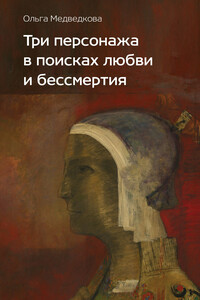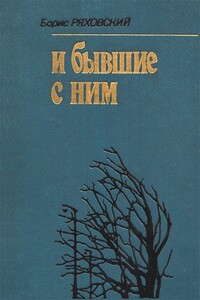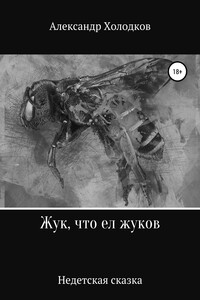36 Arguments for the Existence of God - [7]
Cass had had the lower bunk bed. Both he and Jesse, his younger brother, had wanted the higher bunk, but, as usual, Jesse had wanted what he wanted so much more than Cass had wanted it, with a fury of need that was exhausting just to watch, that Cass had let it go. Lying there awake on his lower bunk, Cass would think about being himself rather than being Jesse. There was Jesse, and here was Cass. But if someone were looking at the two of them, Jesse there, Cass here, how could that observer tell that he, Cass, was Cass here and not Jesse there? If it got switched on them, everything the same about them, the body and memories and sense of self and everything else, only now he was Jesse here and there was Cass there, how would anybody know? How would he know, how would Jesse? Maybe a switch had already happened, maybe it happened again and again, and how could anybody tell?
The longer he tried to get a fix on the fact of being Cass here, the more the whole idea of it just got away from him. If he tried long enough to grasp it, then he could get the fact of being Cass here to blank out of existence and then come dribbling weakly back in, like a fluorescent fixture flickering on and off toward death. He would get the sense of having been shot outside himself, and now was someone who was regarding his being Cass Seltzer as something like his being in the sixth grade, just something about him that happened to be true. Who was that Other that he was who was regarding his being Cass Seltzer as if he didn’t have to be Cass Seltzer? The sense of giddiness induced by these exercises could be a bit too overwhelming for a kid in a lower bunk bed.
It could be a bit overwhelming still.
“Here I am,” Cass is saying, standing on Weeks Bridge and talking aloud into the sublimely indifferent night.
Cass knows he needs to tamp down his tendencies toward the transcendental. It isn’t becoming in America’s favorite atheist, who is, at this moment, Cass Seltzer, who is, somehow or other, just this here.
“Here I am.”
How can it be that, of all things, one is this thing, so that one can say, astonishingly-in the right frame of mind, it is astonishing, with the metaphysical chill blowing in from afar-“here I am”?
“Here I am.”
When you didn’t force yourself to think in formal reconstructions, when you didn’t catch these moments of ravishments under the lens of premises and conclusions, when you didn’t impale them and label them, like so many splayed butterflies, bleeding the transcendental glow right out of them, then… what?
It’s even hard at a time like this to resist the shameful narcissistic appeal of reasonings like The Argument from Personal Coincidences (#8) and The Argument from Answered Prayers (#9) and The Argument from a Wonderful Life (#10). William James had rebuked the “scoundrel logic” that calculates divine provenance from one’s own goody bag of gains, and Cass couldn’t agree more with the spirit of James, but here it is, his bulging goody bag, and call him a scoundrel for feeling personally grateful to the universe when, at this same moment that he is standing on Weeks Bridge and tossing hosannas out into the infinite universe, there are multitudes of others whose lives are painfully constricting with misfortunes that are just as arbitrary and undeserved as his own expansive good luck, but Cass Seltzer does feel grateful.
At moments like this, could Cass altogether withstand the sense that- hard to put it into words-the sense that the universe is personal, that there is something personal that grounds existence and order and value and purpose and meaning-and that the grandeur of that personal universe has somehow infiltrated and is expanding his own small person, bringing his littleness more into line with its grandeur, that the personal universe has been personally kind to him, gracious and forgiving, to Cass Seltzer, gratuitously, exorbitantly, divinely kind, and this despite Cass’s having, with callowness and shallowness aforethought, thrown spitballs at the whole idea of cosmic intentionality?
No, no, that doesn’t capture it either. Those words are far too narrowed by Cass’s own particular life, when what it is he could feel, has felt, might even be feeling now, has nothing to do with the contents of Cass’s existence but, rather, with existence itself, Itself, this, This, THIS… what?
This expansion out into the world, which is a kind of love, he supposes, a love for the whole of existence, that could so easily well up in Cass Seltzer at this moment, standing here in the pure abstractions of this night and contemplating the strange thisness of his life when viewed sub specie aeternitatis-that is to say, from the vantage point of eternity, which comes so highly recommended to us by Spinoza.
Here it is, then: the sense that existence is just such a tremendous thing, one comes into it, astonishingly, here one is, formed by biology and history, genes and culture, in the midst of the contingency of the world, here one is, one doesn’t know how, one doesn’t know why, and suddenly one doesn’t know where one is either or who or what one is either, and all that one knows is that one is a part of it, a considered and conscious part of it, generated and sustained in existence in ways one can hardly comprehend, all the time conscious of it, though, of existence, the fullness of it, the reaching expanse and pulsing intricacy of it, and one wants to live in a way that at least begins to do justice to it, one wants to expand one’s reach of it as far as expansion is possible and even beyond that, to live one’s life in a way commensurate with the privilege of being a part of and conscious of the whole reeling glorious infinite sweep, a sweep that includes, so improbably, a psychologist of religion named Cass Seltzer, who, moved by powers beyond himself, did something more improbable than all the improbabilities constituting his improbable existence could have entailed, did something that won him someone else’s life, a better life, a more brilliant life, a life beyond all the ones he had wished for in the pounding obscurity of all his yearnings, because all of this, this,

1941 год. Амстердам оккупирован нацистами. Профессор Йозеф Хельд понимает, что теперь его родной город во власти разрушительной, уничтожающей все на своем пути силы, которая не знает ни жалости, ни сострадания. И, казалось бы, Хельду ничего не остается, кроме как покорится новому режиму, переступив через себя. Сделать так, как поступает большинство, – молчаливо смириться со своей участью. Но столкнувшись с нацистским произволом, Хельд больше не может закрывать глаза. Один из его студентов, Майкл Блюм, вызвал интерес гестапо.

Что между ними общего? На первый взгляд ничего. Средневековую принцессу куда-то зачем-то везут, она оказывается в совсем ином мире, в Италии эпохи Возрождения и там встречается с… В середине XVIII века умница-вдова умело и со вкусом ведет дела издательского дома во французском провинциальном городке. Все у нее идет по хорошо продуманному плану и вдруг… Поляк-филолог, родившийся в Лондоне в конце XIX века, смотрит из окон своей римской квартиры на Авентинский холм и о чем-то мечтает. Потом с риском для жизни спускается с лестницы, выходит на улицу и тут… Три персонажа, три истории, три эпохи, разные страны; три стиля жизни, мыслей, чувств; три модуса повествования, свойственные этим странам и тем временам.

Герои романа выросли в провинции. Сегодня они — москвичи, утвердившиеся в многослойной жизни столицы. Дружбу их питает не только память о речке детства, об аллеях старинного городского сада в те времена, когда носили они брюки-клеш и парусиновые туфли обновляли зубной пастой, когда нервно готовились к конкурсам в московские вузы. Те конкурсы давно позади, сейчас друзья проходят изо дня в день гораздо более трудный конкурс. Напряженная деловая жизнь Москвы с ее индустриальной организацией труда, с ее духовными ценностями постоянно испытывает профессиональную ответственность героев, их гражданственность, которая невозможна без развитой человечности.

«А все так и сложилось — как нарочно, будто подстроил кто. И жена Арсению досталась такая, что только держись. Что называется — черт подсунул. Арсений про Васену Власьевну так и говорил: нечистый сосватал. Другой бы давно сбежал куда глаза глядят, а Арсений ничего, вроде бы даже приладился как-то».

В этой книге собраны небольшие лирические рассказы. «Ещё в раннем детстве, в деревенском моём детстве, я поняла, что можно разговаривать с деревьями, перекликаться с птицами, говорить с облаками. В самые тяжёлые минуты жизни уходила я к ним, к тому неживому, что было для меня самым живым. И теперь, когда душа моя выжжена, только к небу, деревьям и цветам могу обращаться я на равных — они поймут». Книга издана при поддержке Министерства культуры РФ и Московского союза литераторов.

Жестокая и смешная сказка с множеством натуралистичных сцен насилия. Читается за 20-30 минут. Прекрасно подойдет для странного летнего вечера. «Жук, что ел жуков» – это макросъемка мира, что скрыт от нас в траве и листве. Здесь зарождаются и гибнут народы, кипят войны и революции, а один человеческий день составляет целую эпоху. Вместе с Жуком и Клещом вы отправитесь в опасное путешествие с не менее опасными последствиями.